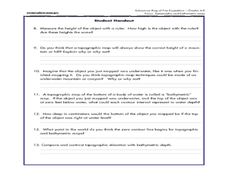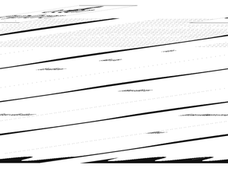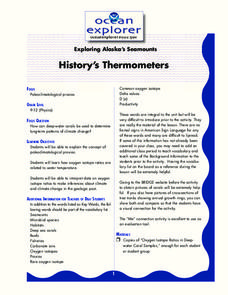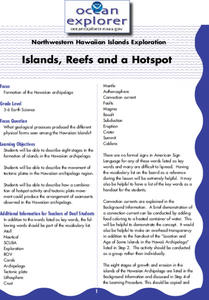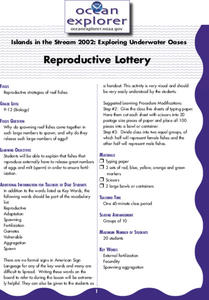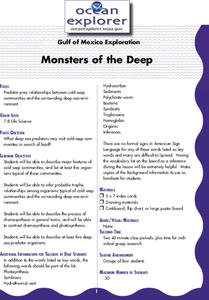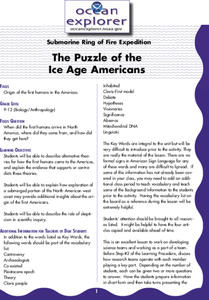Curated OER
The Galapagos Spreading Center
Students explore the basic concept of seafloor spreading. They describe the processes involved in creating new seafloor at a mid-ocean ridge. They investigate the Galapagos Spreading Center system.
Curated OER
Exploring Alaska's Seamounts - Volcanoes, Plates, and Chains
Students examine the formation of seamounts in the Gulf of Alaska. For this seamount lesson, student focus on how the Axial-Cobb-Eikelberg-Patton chain was formed. They learn the associated vocabulary, and watch a teacher demonstration...
Curated OER
A Watered-Down Topographic Map
Eighth graders explore the ocean floor. For this topography lesson, 8th graders compare topographical maps to bathymetric charts. They will create a topographic map and note landmarks and other land features.
Curated OER
Candy Chemosynthesis
Students explain chemosynthesis and photosynthesis using candy. In this chemosynthesis lesson plan, students work cooperatively to create a visual explanation of the chemical equations of photosynthesis and chemosynthesis.
Curated OER
Polar Bear Panic!
Students identify the three realms of the Arctic Ocean, and describe the relationships between these realms. They graphically analyze data on sea ice cover in the Arctic Ocean, and recognize a trend in these data.
Curated OER
Being Productive in the Arctic Ocean
Students identify the three realms of the Arctic Ocean, and describe the relationships between these realms. They identify major factors that limit primary productivity in the Arctic Ocean.
Curated OER
At the Edge of the Continent
Students study how to interpret a bathymetric map. They study the main features of the continental margin. They plot and graph bathymetric data. They think about and discuss the bathymetry of the edge of the cont
Curated OER
Survivors on the Ocean Ridge
High schoolers discover the uniqueness of deep sea hydrothermal vent organisms through an exploration of the NOAA Galapagos Rift Expedition. They study the genetics and evolution of a shrimp species that lives near the vents then they...
Curated OER
History's Thermometers
Learners explain the concept of paleoclimatological proxies. In this oxygen isotope lesson, students interpret data and make inferences about climate changes in the geologic past.
Curated OER
Submersible Designer
Students work in groups to design, build, and test a submersible prototype. In this engineering lesson, students learn about the importance and design of submersible vessels and apply their knowledge by building one of their own. They...
Curated OER
the biggest Plates on Earth
Students understand the movement of tectonic plates. In this tectonic plates lesson, students access prior knowledge of convergent, divergent, and transform boundaries. Students discuss energy transfer involved in plate motion. ...
Curated OER
Signal Corps
Students examine the role of signal corps during the Civil War and explore the technique of 'wigwag.' In this Civil War lesson, students discuss the way they communicate long distance today, they research how a civil war soldier...
Curated OER
Horns or Antlers-You Decide!
Young scholars study the difference between horns and antlers. They identify animals who have each and draw pictures of these animals. They experience samples of actual horns and antlers.
Curated OER
INTRODUCTION TO THE PERIODIC TABLE
Students identify the scientist who first wrote the Periodic Table, identify the scientist who amended the Table, state (or write) specific data relating to the history of the Periodic Table, identify at least five elements, and two...
Curated OER
Blinded by the Light
Students recognize that the colors they see are a result of the reflection of light. In this light and color lesson plan, students predict what color will be produced when lights are mixed. They identify the three primary colors and...
Curated OER
Mystery of the Alaskan Seamounts
Students study seamounts and the processes that form them. In this Gulf of Alaska lesson students interpret data and investigate a hypothesis.
Curated OER
Living With the Heat: The Ring of Fire
Students investigate the planet Earth's infamous ring of fire and the life that thrives from it. In this ocean environment lesson plan, students investigate hydrothermal vents and how organisms thrive off their heat. Students complete...
Curated OER
Islands, Reefs, and a Hotspot
Learners describe eight stages in the formation of islands in the Hawaiian archipelago. They examine the movement of tectonic plates in the Hawaiian archipelago region, and describe how plate movement produced the Hawaiian archipelago.
Curated OER
Roots of the Hawaiian Hotspot
Learners explain the processes of plate tectonics and volcanism that resulted in the formation of the Hawaiian Islands. They describe, compare, and contrast S waves and P waves. They explain how
Curated OER
Reef Fish Real Estate in the South Atlantic Bight
Learners research a species of reef fish to determine its habitat requirements as both a juvenile and an adult. They use this information to create a pamphlet in the style of a real estate brochure that describe the habitat and food...
Curated OER
A Bight is Born
Students sequence and model the events leading to the formation of the southeastern coast of the United States, including the formation of the South Atlantic Bight.
Curated OER
Reproductive Lottery
Students explain that fishes that reproduce externally have to release great numbers of eggs and milt (sperm) in order to ensure fertilization.
Curated OER
Monsters of the Deep
Students describe major features of cold seep communities, and list at least five organisms typical of these communities. They infer probable trophic relationships among organisms typical of cold-seep communities.
Curated OER
The Puzzle of the Ice Age Americans
Students describe alternative theories for how the first humans came to the Americas, and explain evidence that supports or contradicts these theories. They examine the role of skepticism in scientific inquiries.




